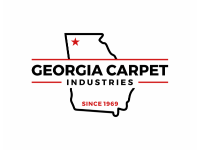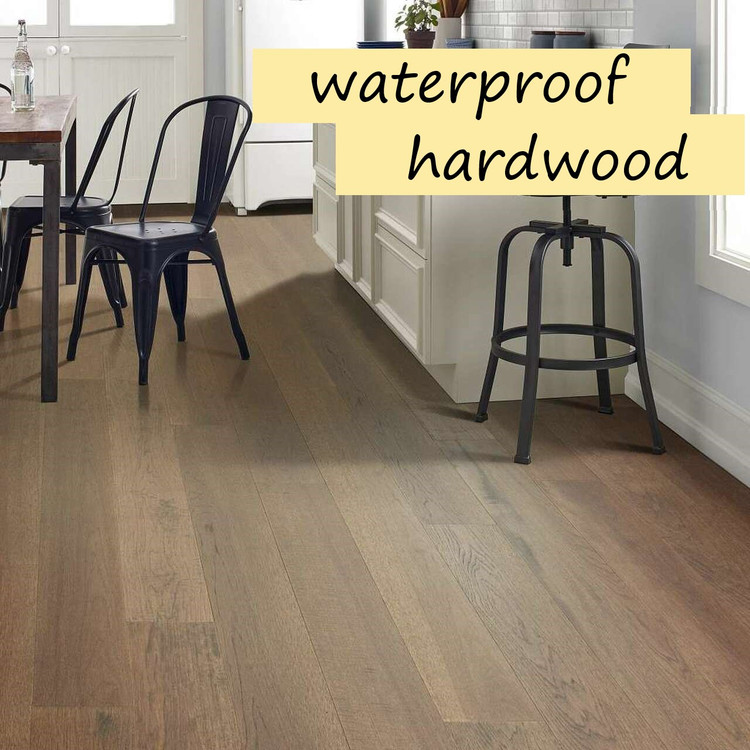Waterproof Hardwood AKA Hybrid Floors
Posted by Johnny Holbert on 31st Jan 2023
What Is Waterproof Hardwood?
"What did you just say?" That's the usual response we get from customers when we bring it up. Using the word "waterproof" and "hardwood" in the same sentence when referring to flooring is the equivalent of multiple negations in the English language (multiple negations is the use of two negatives in a sentence ie. "can't not"). To say the least, it doesn't make sense. Most people shopping for flooring are used to being told that hardwood floors aren't suitable for kitchens or baths because they can be ruined by water. But as with all things, the flooring industry changes with time. The world changes, too. Heck, everything changes in some fashion over time. But as the industry changes, so does the mechanics of durable flooring. That's where waterproof wood flooring comes into play.
Waterproof flooring, also known as hybrid flooring in some circles, is not completely new to the industry. No, this type of flooring has actually been around since 2010. That means it has been on floors in homes and businesses for well over a decade with hardly any recognition. What gives? We'll get to that in a moment, but let's break down the product in layman's terms. In essence, waterproof hardwood is a thin veneer or real hardwood flooring that is adhered to a mineral core or SPC (stone plastic composite) of some sort. It's kind of engineered together, but is different from the traditional engineered hardwood you may be used to hearing about. Traditional engineered hardwood flooring is made of wood through and through. The veneer is a sliced or peeled veneer of hardwood adhered to plywood, then cut into planks. In flooring vernacular, waterproof engineered hardwood is still entirely made of wood.
The mineral core used in engineered hardwood flooring comes from a successful flooring innovation called luxury vinyl flooring or LVP (luxury vinyl plank flooring). LVP is made of several layers, but the two main components are the vinyl top layer and the core or mineral core. The cores come in a few varieties (SPC, WPC, Rigid), but probably the most popular core used right now is the mineral core - and you guessed it, it's made of minerals. Mineral cores are very stable and completely waterproof. LVP is very durable and waterproof, but it's not real wood. The top visual is just a picture of hardwood. So, when you take the mineral core from LVP and adhere a real layer of hardwood on top of it, you get a hybrid floor, or a waterproof engineered wood floor.
Why Use Waterproof Hardwood?
Let's discuss the benefits of having real hardwood on your floor. Are you ready? It's real hardwood. That is the benefit. There's nothing else like it. Nature has given us natural beauty that can be milled and displayed for all to see. Hardwood flooring is durable, easy to clean, stain resistant, comes in a variety of species and textures, can be stained to any color, and the list goes on. Hardwood flooring is a multi-billion dollar industry and it's a renewable resource. It has been around for years and it just keeps giving. A high-quality hardwood floor can last for many years in your home. I would imagine that when almost everyone thinks of redoing their living room floor, they inevitably want hardwood.
The only con to using hardwood flooring is that it's very susceptible to water damage. Hardwood is like a sponge. It absorbs and releases moisture depending upon the environment that it's in, relative to its milled moisture content. Too much moisture in the room? The hardwood absorbs that moisture. Too little moisture in the room? The hardwood releases its moisture. Too much exposure to water, like a leaking dishwasher, or overflowing toilet, and your new hardwood floor will more than likely be ruined. Hybrid flooring is a combination of both worlds. You get the look of hardwood on a mineral, waterproof core. The waterproof engineered wood flooring has a wood veneer that is sealed so that water cannot penetrate from the topside, and the bottom is protected by the mineral core.* This added layer of protection solves the issue of the wood absorbing or releasing water, making the flooring much more durable and able to resist exposure to humidity, spills, condensation and other sources of moisture.
So why has there been little to no chatter about such a marvelous product? Well, the price has been an obstacle. The technology just hasn't been there to mass-produce hybrid flooring at the right price. The only other waterproof products, LVP, are super affordable and last year over year. But now, as the industry changes and the market is flooded with luxury vinyl, retailers are looking for alternatives. Consumers' tastes are shifting from fake to real. And now we have the price point that it takes to bring hardwood back to the home. Hybrid flooring reviews are overwhelmingly positive and point to the consumers' desire to shift back to real wood floors.
- It's worth noting that not all manufacturers of waterproof hardwood flooring have the same claim about being waterproof. It's the consumer's responsibility to read and evaluate each claim for each product offered. Also, once a waterproof hardwood has been cut to fit against the wall, or ripped to end a run, then the exposed hardwood from the cut WILL NOT be sealed and therefore not be waterproof.
For more information on affordable waterproof hardwood, I recommend looking at Shaw's Westminster Waterproof Hardwood. You can find these floors and some of the other best waterproof flooring online at Georgia Carpet.



